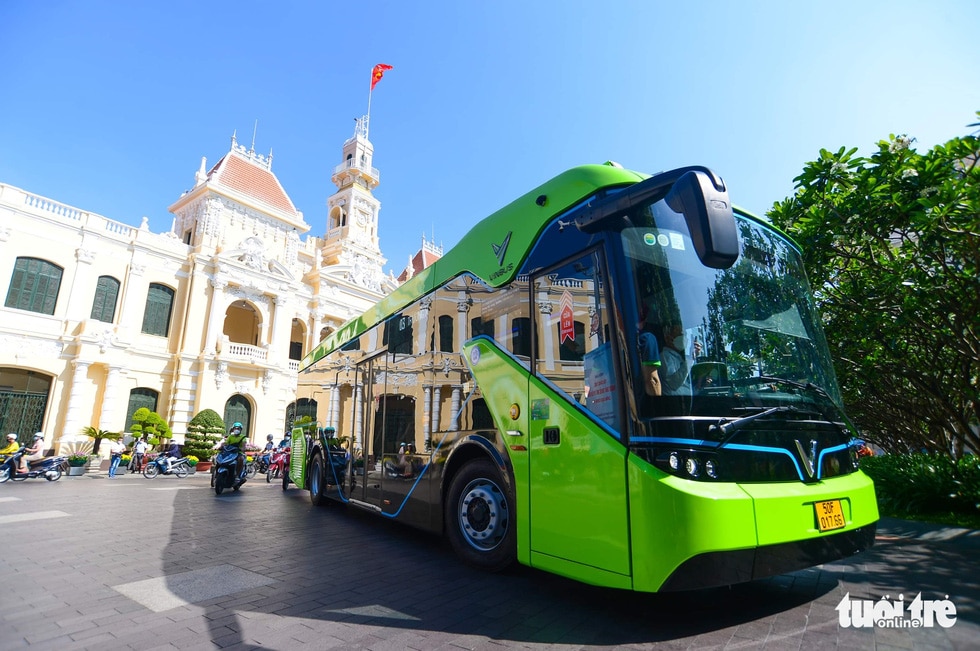
On the morning of March 8th 2022, Ho Chi Minh City (HCMC) opened the first e-bus route operated by Vinbus with a distance of 29 km. The fare is only from VND 3,000-7,000 per turn, while the elderly, people with disabilitties and children under 1.3 metre height, can ride free of charge.
The newly launched route D4 connects Vinhome Grand Park urban area (Thu Duc City) to Saigon Bus Station (District 1) and is the first e-bus route of the five pilot routes in HCMC. A total of 77 e-buses will operate on these five pilot routes. The buses use clean energy with no emissions, move smoothly, and do not cause noise pollution. The e-buses are designed with an automatic lowering mode for the elderly, people with disabilitties or pregnant women, to easily get on and off the bus.
Vice Chairman of Ho Chi Minh City People’s Committee, Mr Le Hoa Binh, highly appreciated the launch of electric buses in the city. The operation of the e-bus system will not only facilitate travel, but also change people’s habits in using public transport, helping to limit personal vehicles. Currently, the city leaders have been requiring relevant stakeholders to coordinate for an effective route exploitation and preparation for the replication of the pilot routes.
The NDC Transport Initiative for Asia (NDC-TIA) is currently supporting the Department of Transport in Ho Chi Minh city to develop a city e-mobility roadmap, which will include the implementation roadmap to replace traditional buses with electric buses on a city-wide scale. Additionally, the project will help HCMC’s DOT to develop economic and technical norms for the e-buses. This together with the HCMC e-mobility roadmap, and the lessons learnt from the pilot run of the e-buses in Hanoi and HCMC will be key premises to analyse the lessons for uptake in other cities, moving towards the goal of a full electrification of the public bus system in Vietnam.
NDC-TIA is part of the International Climate Initiative (IKI). The Federal Ministry for the Environment, Nature Conservation and Nuclear Safety (BMU) supports this initiative on the basis of a decision adopted by the German Bundestag. It supports China, India, and Viet Nam as well as regional and global decarbonisation strategies to increase the ambition around low-carbon transport. In Viet Nam, the project’s implementing organisation is GIZ and partner institutions include World Resources Institute (WRI) and International Council on Clean Transportation (ICCT). Viet Nam Ministry of Transport (MOT) is the Lead executive organisation and the Department of Environment (DOE) is the project owner. For more information on the project, please visit https://www.ndctransportinitiativeforasia.org/.
You are currently viewing a placeholder content from X. To access the actual content, click the button below. Please note that doing so will share data with third-party providers.
More Information